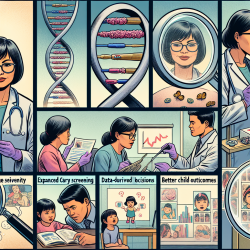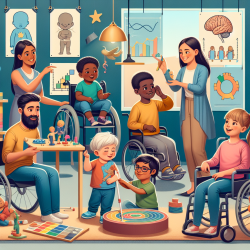Exploring Gene Severity for Improved Speech Language Pathology Outcomes
As a speech-language pathologist, understanding the genetic factors that may influence speech and language development in children is crucial. The recent study titled "Evaluation and classification of severity for 176 genes on an expanded carrier screening panel" by Arjunan et al. provides valuable insights into how genetic screening can be utilized to enhance our practice.
Research Insights: The Severity Algorithm
The study applied a validated algorithm to classify 176 genes into four categories of severity: mild, moderate, severe, and profound. This classification was done by a team of genetic counselors and medical geneticists who mapped these classifications to the American College of Obstetricians and Gynecologists (ACOG) severity criteria. The results were illuminating:
- 68 genes (39%) were classified as profound.
- 71 genes (40%) as severe.
- 36 genes (20%) as moderate.
- 1 gene (1%) as mild.
Furthermore, 96.6% of the genes met at least one ACOG severity criterion, showcasing the robustness of the classification system.
Implications for Speech Language Pathologists
Understanding these genetic classifications can significantly impact how we approach therapy and intervention strategies. Here’s how:
- Targeted Interventions: By knowing the severity of a genetic condition, we can tailor our interventions more precisely, ensuring they are appropriate for the child’s specific needs.
- Early Identification: The ability to identify severe genetic conditions early can lead to earlier intervention, which is critical for optimal speech and language development.
- Collaboration with Geneticists: Working closely with geneticists can enhance our understanding of the genetic underpinnings of speech and language disorders, leading to more effective treatment plans.
Encouraging Further Research
While this study provides a strong foundation, there is always room for further research. Speech-language pathologists are encouraged to delve deeper into the genetic aspects of speech and language disorders. Understanding the genetic basis can open new avenues for treatment and intervention, ultimately leading to better outcomes for children.
Conclusion
The classification of gene severity has profound implications for our practice as speech-language pathologists. By integrating these insights into our work, we can make more informed, data-driven decisions that enhance the quality of care we provide. To explore the original research paper and gain a deeper understanding of these findings, please follow this link: Evaluation and classification of severity for 176 genes on an expanded carrier screening panel.










